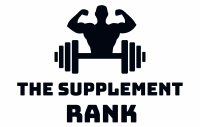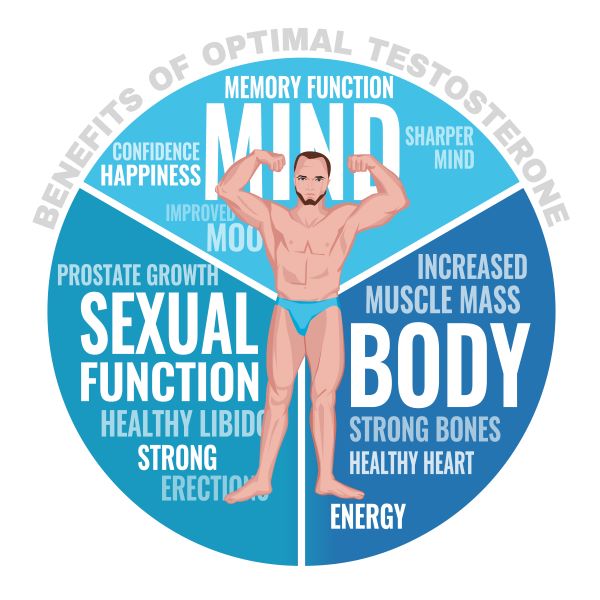There are a lot of ingredients that claim to be the best for boosting testosterone. But which ones actually work? Here’s a look at the top ingredients found in effective testosterone boosters.

Zinc
Zinc is an essential mineral for testosterone production. It helps the body to create the hormone in the testicles, and also plays a role in sperm health. Zinc levels can be low in men who have low testosterone levels. Supplementing with zinc has been shown to raise testosterone levels and improve fertility. Zinc is also important for other aspects of health, including the immune system, skin health, and brain function.
Zinc is found in a variety of foods, including oysters, beef, pumpkin seeds, and fortified cereals. The best way to get enough zinc is to eat a varied diet that includes these foods. You can also take a supplement to ensure you’re getting enough of the mineral. Zinc is generally considered safe, but too much can cause side effects like nausea and vomiting.
Magnesium
Magnesium is another mineral that can be found in just about every testosterone booster supplement out there. It’s one of the most important minerals for testosterone production and it’s also involved in over 300 biochemical reactions in the human body.
Magnesium is a key mineral for testosterone production because it’s necessary for the conversion of vitamin D into its active form, which is critical for testosterone production. In addition, magnesium is involved in the synthesis of testosterone and other hormones, such as estrogen and progesterone.
Studies have shown that magnesium supplementation can increase testosterone levels in men. This study by the Journal of Pharmaceutical and Biomedical Analysis found that men with low testosterone could benefit from taking a magnesium supplement.
Magnesium is also involved in the relaxation of blood vessels, which can improve blood flow and oxygen delivery to muscles. This is important because testosterone production increases with exercise and magnesium can help to optimize testosterone production in response to exercise.
Magnesium is found in many foods, such as leafy green vegetables, beans, nuts, and whole grains. It’s also available in supplement form and it’s often included in testosterone booster supplements.
Oyster Extract
Oyster extract is one of the best ingredients you can look for in a testosterone booster supplement. Oysters are a great source of zinc, which is essential for testosterone production. In addition, oysters contain high levels of magnesium, selenium, and copper, all of which are important minerals for testosterone production. Oyster extract will not only help to boost testosterone production but will also support other aspects of your health, including libido.
Fenugreek
Fenugreek is a clover-like herb native to the Mediterranean region. For centuries, fenugreek has been used as a natural remedy for a variety of ailments. Recently, this herbal supplement has gained popularity as a testosterone booster.
Fenugreek is rich in compounds that can increase testosterone production and help improve male sexual health. These properties make fenugreek an effective natural remedy for low testosterone levels.
In this study, free testosterone levels were improved by up to 46% after eight weeks of fenugreek supplementation.
Fenugreek is also effective in treating erectile dysfunction and other sexual health problems. This herb has been shown to increase libido and improve sexual performance in men.
D Aspartic Acid
D-Aspartic Acid is an amino acid that aids in the release of many hormones including luteinizing hormone which regulates the testes along with follicle-stimulating hormones, and perhaps most importantly of all, growth hormone which helps build muscle. Studies have also shown it to do well at removing rate limits of testosterone production.
Ginseng
Ginseng is an herbal remedy that has been used for centuries in traditional Chinese medicine. Ginseng is thought to boost testosterone levels by stimulating the production of testosterone in the body. Animal studies have shown that ginseng can increase testosterone levels, but human studies are needed to confirm these effects. Ginseng is also thought to improve energy levels, reduce stress, and enhance stamina and endurance. If you’re looking for a natural testosterone booster, ginseng may be worth considering. However, it’s important to speak with your doctor before taking any supplements, as they can interact with medications you may be taking and cause unwanted side effects.
Maca
Maca is a root vegetable that is native to the Andes mountains in Peru. For centuries, maca has been used as a traditional remedy for a variety of health conditions. Recently, maca has gained popularity as a testosterone booster and sexual enhancer.
Maca is rich in compounds that can increase testosterone production and help improve sexual function. In one study, men who took maca powder for 12 weeks experienced an increase in testosterone levels and improved sexual function. Another study showed that maca supplementation improved sexual desire in men with low libido. If you’re looking for a natural way to boost testosterone and improve your sexual performance, maca may be worth considering.
Ashwagandha
Ashwagandha is an Ayurvedic herb that has been used for centuries to help address a variety of issues, including stress, anxiety, and sexual dysfunction. Recently, however, ashwagandha has gained notoriety as a testosterone booster.
There is some science to support the use of ashwagandha for testosterone boosting. In one study, for example, healthy men who took ashwagandha for eight weeks saw a significant increase in their testosterone levels.
While more research is needed to confirm the efficacy of ashwagandha for testosterone boosting, there is certainly potential.
Tongkat Ali
Tongkat Ali is a natural herb that has been traditionally used for testosterone boosting. The active ingredient in Tongkat Ali is Eurycoma Longifolia, which has been shown to increase testosterone levels by 37% while reducing cortisol levels..
Tongkat Ali works by increasing the production of luteinizing hormone, which stimulates the production of testosterone. In addition, Tongkat Ali also inhibits the aromatase enzyme, which converts testosterone into estrogen.
The combination of these two effects makes Tongkat Ali an effective herbal remedy for increasing testosterone levels. There are many studies that have been conducted on Tongkat Ali and its effects on testosterone levels.
Tongkat Ali is a safe and effective herbal remedy for boosting testosterone levels.
Mucuna Pruriens
Mucuna Pruriens, also known as velvet bean, is a tropical legume that has been used traditionally in Ayurveda for its various health benefits. Mucuna Pruriens contains l-dopa, a precursor to dopamine, which is a neurotransmitter that plays an important role in the brain. Dopamine is involved in many processes, including motivation, learning, and memory.
L-dopa is converted into dopamine in the brain. This can help to improve mood and cognitive function. Additionally, mucuna Pruriens contains compounds that can help to boost testosterone levels. Testosterone is a hormone that plays an important role in muscle growth, bone density, and sex drive. By boosting testosterone levels, Mucuna Pruriens can help to improve muscle mass and strength, as well as increase sex drive. Additionally, Mucuna Pruriens can help to improve mood and reduce stress levels.
Nettle Root
This plant root helps to boost test levels by binding to globulin. When this happens, free testosterone can be used by the body more readily. It also contains other compounds that may aid in testosterone production. These include sterols and flavonoids. Nettle root is most commonly taken in capsule form or as a tea. The recommended dosage depends on the product and the person’s age and health status. Speak to a healthcare provider before taking nettle root supplements. People with bleeding disorders or those taking blood-thinning medications should avoid use. Some medications can interact with nettle root, so it’s important to speak with a healthcare provider beforehand.
Shilajit Extract
This is a dark tar substance from the Himalayas that was shown in this study to raise testosterone by 34% in rats. The mechanisms are thought to be due to the fulvic acid and dibenzo-alpha-pyrones it contains. In this study, it was shown to increase sperm count and quality and also raise testosterone serum levels
Shilajit extract has been used for centuries in Indian Ayurvedic medicine to treat a variety of issues, including sexual dysfunction and infertility. The traditional way of taking shilajit is by licking it off a piece of rock. Tasty!
Diindolylmethane (DIM)
This is a compound found in cruciferous vegetables such as broccoli and Brussels sprouts. It’s thought to work by modulating estrogen levels. High estrogen levels can lead to low testosterone levels. Therefore, by reducing estrogen levels, DIM may help to increase testosterone levels.
It has been shown to enhance the metabolism of estrogen which in turn will help boost test levels. The recommended dosage of DIM is 50-200 mg per day.
Luteolin
This is a compound found in various fruits and vegetables, including oranges, carrots, and green peppers. It’s thought to work by inhibiting the aromatase enzyme, which converts testosterone into estrogen.
Luteolin has able been shown to lower estrogen levels by binding with estrogen receptors
Vitamin D
This vitamin is essential for testosterone production. Vitamin D is produced in the body when the skin is exposed to sunlight. It can also be obtained from certain foods, such as fatty fish, eggs, and fortified dairy products.
Studies have shown that vitamin D supplementation can increase testosterone levels. One study showed that men who were deficient in vitamin D and took a vitamin D supplement had a significant increase in testosterone levels. The recommended dosage of vitamin D is 1,000-5,000 IU per day.
Boron
This is a mineral that’s found in certain foods, such as nuts and leafy green vegetables. It’s thought to work by increasing testosterone levels and improving calcium absorption.
A study in men showed that those who took a boron supplement had significantly increased testosterone levels. The recommended dosage of boron is 10 mg per day.
Vitamin B6
Vitamin B6 is a water-soluble vitamin that plays an important role in many biochemical reactions in the body. It is involved in protein metabolism, red blood cell production, and nervous system function. Vitamin B6 is also necessary for the proper function of testosterone, the male sex hormone.
Studies have shown that vitamin B6 can increase testosterone levels in men. One study found that men who took a vitamin B6 supplement had higher levels of testosterone than those who did not take a supplement. Another study found that men who took a vitamin B6 supplement for four weeks had higher levels of testosterone than those who did not take a supplement.
Vitamin B6 is thought to increase testosterone levels by helping the body convert cholesterol to testosterone. Cholesterol is a precursor to testosterone, and vitamin B6 is necessary for the proper conversion of cholesterol to testosterone.
Vitamin B6 may also increase testosterone levels by reducing the activity of aromatase, an enzyme that converts testosterone to estrogen. Aromatase inhibitors are drugs that are used to treat breast cancer and they work by reducing the activity of this enzyme. Vitamin B6 has been shown to reduce the activity of aromatase in vitro, and it is thought that it may have a similar effect in the body.
Benefits of More Testosterone
There are many benefits to having more testosterone. Testosterone is responsible for the development of male sexual characteristics, such as a deeper voice, facial hair, and increased muscle mass. It also plays a role in fertility, bone health, and red blood cell production.
More testosterone can also lead to improved mental well-being. Testosterone has been shown to improve mood, increase energy levels, and reduce anxiety. It may also cognitive function and protect against Alzheimer’s disease.
Testosterone replacement therapy is a treatment used to address low testosterone levels. It can be administered through injections, patches, gels, or implants. Testosterone replacement therapy can improve many of the symptoms associated with low testosterone levels, such as fatigue, low libido, and depression. It can also improve bone density, muscle mass, and red blood cell production.
Watch Out For Proprietary Blends
When looking at testosterone boosters, you may see something called a “proprietary blend.” This is a mix of ingredients that are combined in a single pill or powder.
The problem with proprietary blends is that you don’t know how much of each ingredient you’re getting. The manufacturer is not required to disclose this information, so it can be difficult to determine if the product is effective.
Another issue with proprietary blends is that some of the ingredients may interact with each other. For example, vitamin D and calcium can compete for absorption, so taking them together may not be as effective as taking them separately.
History of Testosterone Boosters. Where Did They Come From?
The first testosterone booster was created in 1935. It was a synthetic testosterone compound called testosterone propionate. Testosterone propionate was used to treat low testosterone levels in men and boys. It was also used to stimulate muscle growth in animals.
In the 1950s, testosterone propionate was replaced by testosterone enanthate, another synthetic testosterone compound. Testosterone enanthate was more effective than testosterone propionate and had fewer side effects. Testosterone enanthate is still used today to treat low testosterone levels.
In the 1960s, testosterone boosters started to be used for non-medical purposes. Bodybuilders and weightlifters began using them to increase muscle mass and strength.
In the 1980s, testosterone boosters became more popular with the general public. Ads for testosterone boosters promised to increase energy, strength, and libido.
Today, there are many different testosterone boosters on the market. They come in a variety of forms, including pills, powders, and patches. Some testosterone boosters are natural and made with herbal ingredients. Others are synthetic and made with testosterone or other hormones.
What Are The Risks of Taking Testosterone Boosters?
Testosterone boosters are generally safe and well-tolerated. However, there are some risks associated with taking them.
The most common side effects of testosterone boosters include acne, hair loss, and increased aggression. These side effects are most often seen in people who take high doses of testosterone boosters or who have a history of steroid use.
Testosterone boosters can also interact with other medications. For example, testosterone boosters can increase the risk of bleeding if taken with blood thinners. They can also cause sleep apnea in people who are predisposed to it.
If you’re considering taking a testosterone booster, talk to your doctor first to make sure it’s safe for you.
What Are The Benefits of Taking Testosterone Boosters?
Testosterone boosters can offer a variety of benefits. They can increase energy levels, improve mood, and reduce anxiety. They can also stimulate muscle growth, improve bone density, and increase red blood cell production.
testosterone boosters are most effective in people who have low testosterone levels. However, they can also be helpful for people who have normal testosterone levels but want to increase their muscle mass or strength.
testosterone boosters are not a substitute for testosterone replacement therapy. If you have low testosterone levels, testosterone replacement therapy is the most effective treatment option.
If you’re considering taking a testosterone booster, talk to your doctor to see if it’s right for you.
Conclusion
Testosterone boosters are a type of supplement that is used to increase testosterone levels. They can offer a variety of benefits, including increased energy, improved mood, and reduced anxiety. They can also stimulate muscle growth, improve bone density, and increase red blood cell production.
Testosterone boosters are generally safe and well-tolerated. However, there are some risks associated with taking them. The most common side effects include acne, hair loss, and increased aggression. Testosterone boosters can also interact with other medications.
Related posts:

Ryan is a former college wrestler and fitness fanatic who specializes in supplements for building muscle. He has written for online publications like TheAthleticBuild.com and FitnessTopFives. He is also an expert lawn mower and has been known to slay apple pie with little regard for his own safety. Hit him up on Linkedin below so he feels the love.

